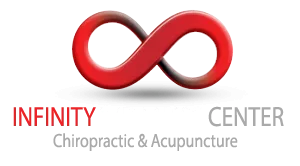Certified AMIT Specialist in Lubbock, TX
Both Dr. Matt and Dr. Lindsey are trained and certified in Advanced Muscle Integration Techniques (AMIT) ®. The AMIT system of analysis performs a functional evaluation of 720 muscles in the body. Treatment follows to restore the injured or affected area.
In simple terms, when a muscle is over stressed beyond its ability to handle a load, the tissue either tears or is neurologically inhibited. This condition is defined as either “Arthrogenic Muscle Inhibition” (AMI) or “Neuro-Proprioceptive Inhibition” (NPI). AMI is caused when the joint is injured or inflamed. NPI is caused when a muscle or connective tissue is injured.
How can AMIT help me?
AMIT treats the inhibition that takes place in nerve centers called proprioceptors. These centers called “intelligent terminals” monitor tension, stretch, motion, and pressure. When the system is traumatized or inflamed, these centers “trip”, much like a circuit breaker in an electrical circuit. Once this occurs, the muscle stays inhibited when it is placed under load. Loss of range of motion, pain, and weakness are experienced. When this happens, other muscles or tissues attempt to take on more of the load as the body adapts and compensates.
After the NPI muscle is defined by the doctor, stimulation of eight separate reflex centers and adjustment of three spinal segments, re-activates proper neurological function for that muscle. In the case of AMI, manipulation of the joint can re-establish the normal feedback receptors and the muscle associated with that joint to reactivate in pain free motion. Once reactivated, the muscles are now prepared to respond to strengthening exercises. Using AMIT, the body is aided in the support it needs to heal and perform optimally.
When a muscle is overloaded beyond its ability to sustain the load, one of two things happen. The muscle fibers tear and/or the nervous system inhibits the muscle. Much like a circuit breaker in an electrical circuit. This is done to protect the muscle from more severe injury.
If the inhibited muscle is loaded again during physical activity it will not be able to contract appropriately to support the force applied and will be weak. If the muscle continues to be stressed, the body will create pain so as to avoid more damage.
This can also occur when a joint is swollen, inflamed or injured setting up what is identified as “Arthrogenic muscle inhibition” (AMI). The process of AMI occurs when a joint is swollen, inflamed or injured, any muscle that attaches to the joint or crosses over the joint will become inhibited. This is common in post surgical cases and explains why rehabilitation is slow or reaches an unacceptable plateau.
Once a muscle is inhibited, the central nervous system develops an adaptive strategy to use other muscles or tissues to take on more of the load. This leads to adaptive movement patterns and is called “recruitment” or “adaptation”.
The adapted tissue becomes the next site of injury and the injury / adaptation cycle continues.
Eventually, there will be no muscles in an area to adapt to. This places more stress on the ligaments and connective tissues and they begin to break down more rapidly. This leads to degenerative changes in the joint.
Objective precision neurological muscle testing is the back bone of the AMIT system.
Testing of isolated muscles assesses the function of individual muscles to determine if they are inhibited or functional. This defines positions of instability.
Muscle overload occurs because of:
•Lack of conditioning to the level of demand.
•Traumatic force exceeds the integrity of the muscle or tissues.
•Neurological inhibition
•Proprioceptive inhibition
•Nutritional deficiencies and excesses.
•Acupuncture system imbalances
•Overuse
•Dehydration
•Organ / gland stress
•Emotional stress
•Sleep deprivation
•Disease
•Medications
•Ice
•Physical therapy modalities
•Toxic overload
•Training and conditioning imbalances
